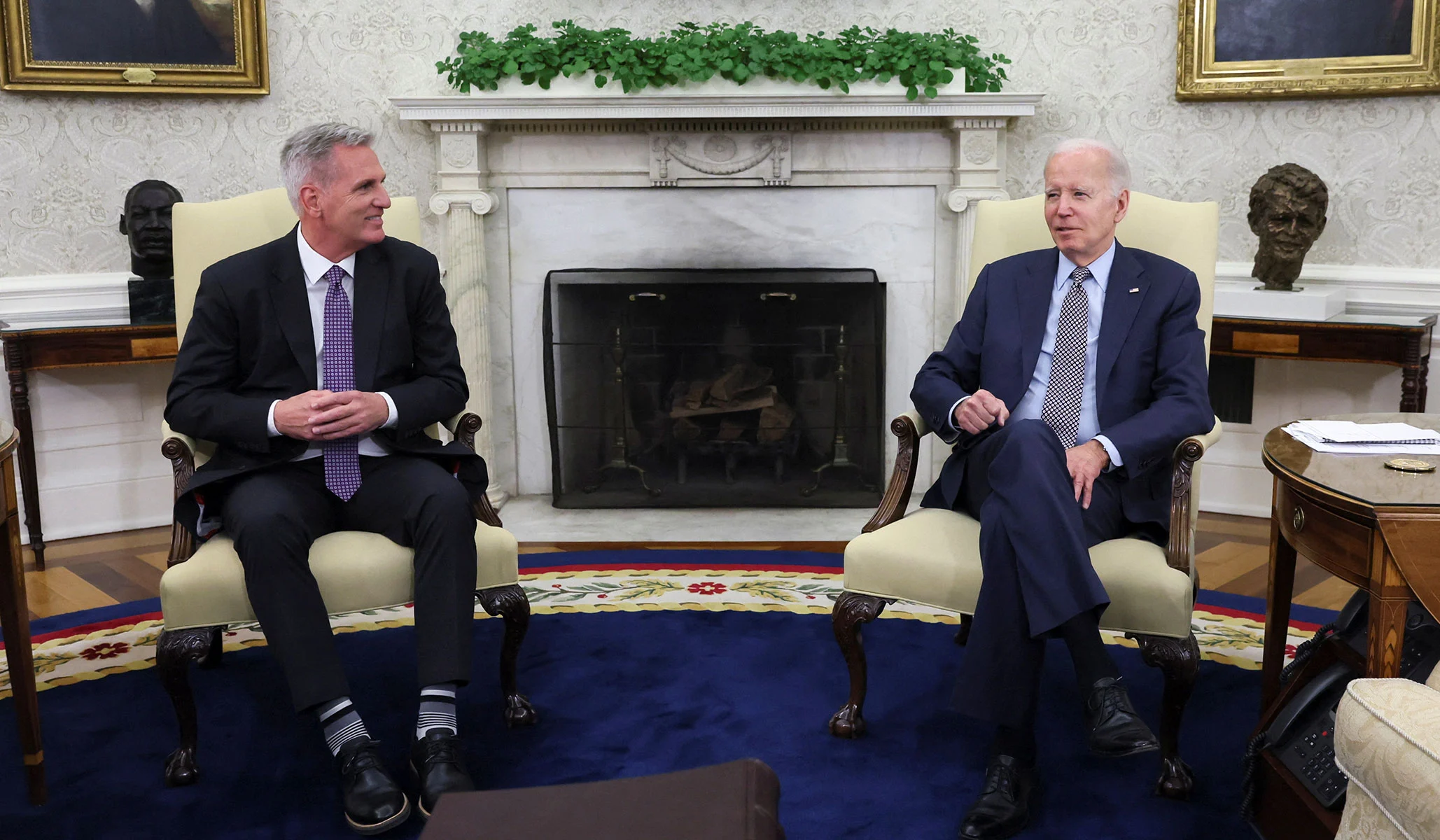After the debt-ceiling negotiations, which resulted in a bipartisan compromise and prevented a default, the question arises: is Washington working again? Despite media narratives portraying Republicans as “terrorists” and “hostage-takers,” Speaker McCarthy managed to strike a deal with President Biden that passed both chambers of Congress with a comfortable majority. However, the debt-ceiling deal did not do much to affect the long-term trajectory of the debt, which was the primary issue at hand.
Both McCarthy and Biden used hard-nosed language, typical of politics in previous decades, and avoided demonizing each other. McCarthy secured a victory by passing a Republican debt-ceiling bill in April, which forced Biden to the negotiating table. Biden was able to say he was responsibly paying America’s debts and got a bipartisan deal to do so. In that sense, the process worked, and ordinary legislation prevented default.
However, both parties promised not to touch entitlements, which are the primary driver of America’s debt problem. As long as politicians refuse to reform them, the problem will remain. The Senate was excluded from the negotiations, which is not how the constitutional order is supposed to work. The legislative negotiations should have been primarily between McCarthy and Senate Majority Leader Chuck Schumer, but the Senate, under Democratic control, was acting as little more than a rubber stamp for Biden.
A legislature is supposed to be a political body that generates ideas, not figure out what the president wants and fall in line behind him. Solutions should emerge from the bottom up, often in ways that are not planned in advance. McCarthy’s messy ascension to the speakership was a rare vote in Congress where the outcome was not known in advance, and more votes should be like that. The House is still nowhere near as decentralized as it could be, and Senate Democrats remain content to run the chamber from the leadership office.
If “Washington working” means nothing more than passing routine legislation on time, then Washington worked during the debt-ceiling negotiations. However, we should measure whether Washington is working primarily by whether politicians are following the Constitution’s design for deliberative government with separation of powers. The parties successfully negotiated with each other, but they did so while treating the Senate as a rubber stamp for the president, not a chamber of Congress with its own prerogatives and interests.

